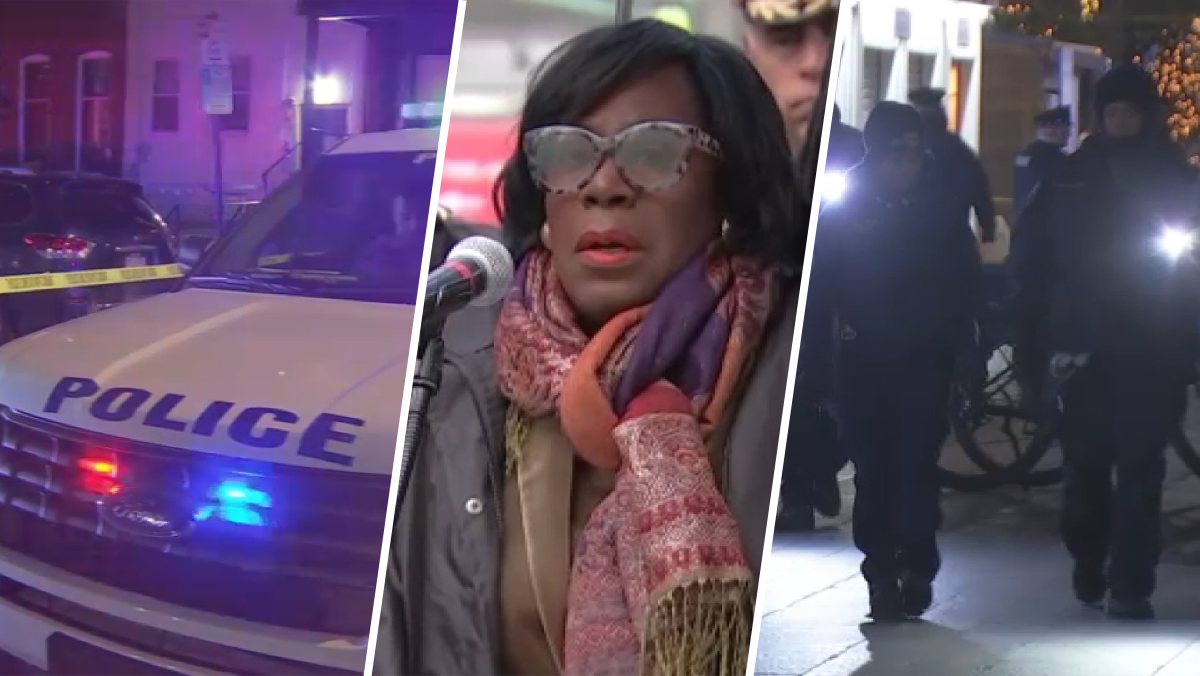What to Know
- Philadelphia has agreed to settle a wrongful death lawsuit filed by the family of Walter Wallace Jr., a Black man experiencing a mental health episode whose fatal shooting by police a year ago was recorded and led to protests, an attorney said Thursday.
- A source with direct knowledge of the settlement told NBC10 the monetary amount is $2.5 million.
- Attorney Shaka Johnson said during a news conference that it was “substantial” but stressed it included an injunctive agreement that resulted in the announcement this week that the city would spend $14 million to equip all patrol officers with stun guns and require they be carried while on duty.
Philadelphia has agreed to settle a wrongful death lawsuit filed by the family of Walter Wallace Jr., a Black man experiencing a mental health episode whose fatal shooting by police a year ago was recorded and led to protests, an attorney said Thursday.
A source with direct knowledge of the settlement told NBC10 the monetary amount is $2.5 million.
Attorney Shaka Johnson said during a news conference that it was “substantial” but stressed it included an injunctive agreement that resulted in the announcement this week that the city would spend $14 million to equip all patrol officers with stun guns and require they be carried while on duty.
Get top local stories in Philly delivered to you every morning. >Sign up for NBC Philadelphia's News Headlines newsletter.
“It was ... a substantial monetary settlement that reflected the tragedy that took place, the city’s role and policy failures that contributed to his death,” Johnson said. “The financial settlement was never the family's primary objective. They have from the beginning called for reforms to the police department.”
The U.S. Department of Justice had recommended, in a review of the police department's use of deadly force in 2015, that Philadelphia issue stun guns to all patrol officers, but that never happened, Johnson said.
The family of Wallace, 27, had made several calls for help on the day of the October 2020 shooting, some of them noting he was becoming violent as he experienced a mental health crisis. Video from officers and bystanders showed that two white police officers fired fatal shots within a minute of responding to the home in Philadelphia's Cobbs Creek neighborhood.
Local
Breaking news and the stories that matter to your neighborhood.
During those tense seconds, Wallace appeared to be holding a knife at his side. He ignored commands to drop the weapon as he walked off a porch and zigzagged between cars and across the street.
The officers fired 14 shots at the man, and he crumpled in the street. His mother could be seen in bystander video following Wallace and begging police not to shoot.
The shooting, just five months after the police killing of George Floyd in Minneapolis and subsequent nationwide protests, sparked days of unrest and marches demanding an end to police brutality in Philadelphia.
Wallace's family has said that if officers had been equipped with less lethal options than guns, he would still be alive. Johnson said the settlement means there will be legal recourse if the city fails to follow through on giving stun guns to officers.
“If this situation can save anybody's life ... if we can save any human being, then I think it is for a good cause,” said Wallace's father, Walter Wallace Sr.
After the shooting, police and city officials said that nearly two-thirds of the more than 6,000-member Philadelphia police force were not equipped with or trained to use electroshock weapons.
A script of questions now in place for 911 operators designed to help identify mental health issues before officers arrive is also in part, thanks to negotiations during the lawsuit, Johnson said.



